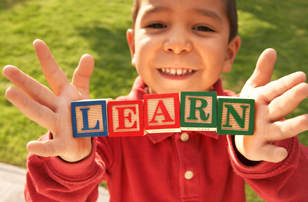The Special Education Process Explained
What is Special Education? – Under the Individuals with Disabilities Education Act (IDEA), qualified children are entitled to special education accommodations and individualized education programs (IEPs) to give them the same educational opportunities as their peers. Through services in schools and at private providers, special education gives students with special needs the kind of attention and tools they need to succeed in learning.
The purpose of special education is to “level the playing field” by providing specialized services to students with disabilities so that they can succeed academically.
Parents and educators know that children with special needs have gifts and talents—it’s just a matter of unleashing their full potential, and making sure that their parents and teachers have the right information, tools and support to help them. That’s where Special Education Guide comes in. We are your go-to resource for mastering the terminology, procedures and best practices in special education.
Bring in the Experts
We draw upon the expertise of parents, educators and researchers to provide the information you require, from early identification to individualized education plans (IEPs) and response to intervention (RTI), as well as behavior management, parent-teacher relations, inclusion, technology tools and research. Our writers are experts in special education; they bring you practical information that you can apply in the classroom, your next IEP meeting or at home.
Learning is Power
It’s important to make sure that your child or student with special needs is learning; that means that you need to understand the ins and outs of special education. The Special Education Dictionary has a laundry list of terms and acronyms to help you make sense of all the jargon. You’ll be speaking “SPED” before you know it! Our Disability Profiles will help you understand how federal laws define disabilities eligible for special education services, and provide practical information on typical characteristics, as well as tips on addressing educational challenges.
Our Early Intervention section addresses services for the youngest children with special needs, from birth to their third birthdays. If you live or work with children under age 3 who have a disability or experience difficulty in learning, early identification and early intervention can make a profound difference in their educational and behavioral progress. Your active participation in the identification and assessment process is key.
Parents and teachers of children age 3 to 18 can go to our Pre-K to 12 section to learn what to expect, with a review of the special education process and detailed accounts of how schools develop individualized education programs (IEP) and response to intervention (RTI) plans for students. We also help parents and educators use assessments and observations to develop effective action plans to use at home, addressing topics such as behavior and classroom management and how parents and teachers can work together. In addition, you can discover the power of effective inclusion and how accommodations and modifications can produce measurable results.
Celebrate the Individual
Addressing a child’s educational and behavioral needs is not a cookie-cutter process. You need ongoing support, resources and tools that keep you informed and assist you along the way. Special Education Guide will help you navigate the process of educating children with special needs, honoring their unique gifts and potential.









